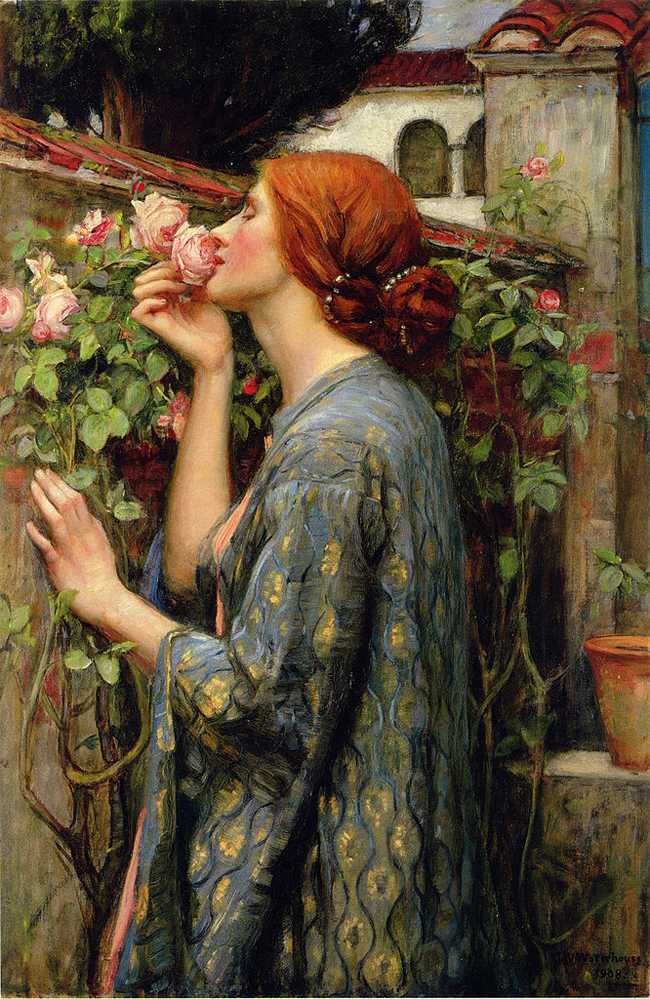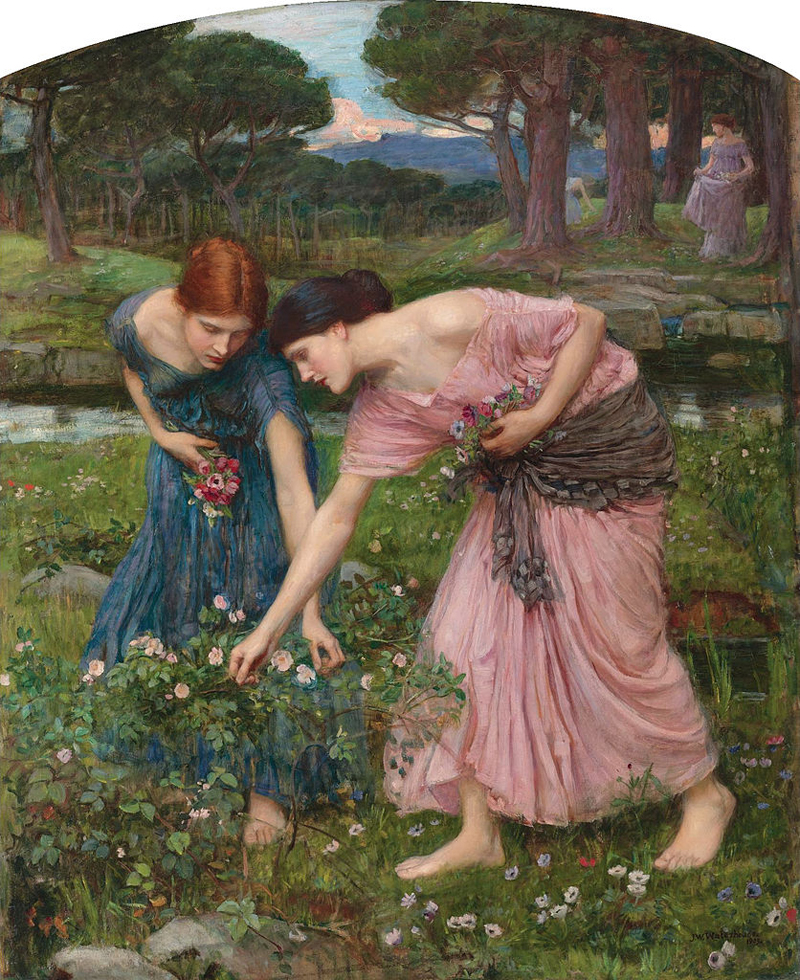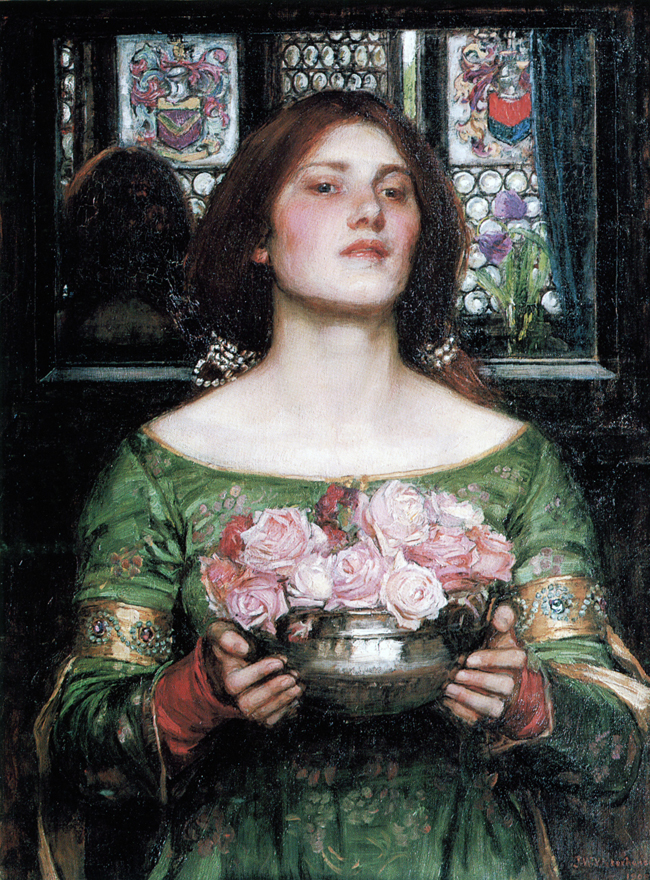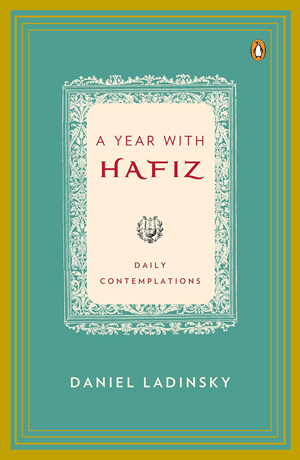
Image: Public Domain
Embodiments of Christ
“Our heart holds within it all forms,
that our hearts created.”
DANIEL LADINSKY (born 1948) is an American writer and poet, internationally renowned for his profound renderings of sacred poetry, specifically beautiful transcreations of the poems of Rumi and Hafiz.
In this month’s guest post for The Culturium, Daniel offers us an intimate portrait of his time spent at the tomb-shrine of Indian Master Meher Baba—believed to be an Avatar or God in human form—and the way in which the experience went on to inspire his life’s work.
oOo
To me, the word “Rose” can be a symbol for Jesus, God, the Beloved, or life itself. Thus, how might the great saints, Zen masters, or truly illumined seers see and understand everything? How might they respond in their heart to the unfoldment of Existence? The unfoldment of God!
It will be some 46 years ago that I first went to India and felt my first real connection with Hafiz. And then did, very inadvertently, my first translation-rendering of a Hafiz line. I just made a one-word change in a sentence, and then expounded on that line in my mind, which I have never forgotten. I want to tell some of that story.
I can still remember so well, feeling then, some 46 years ago, and saying to myself: “This line seems so complete and deep to me. I could walk off to the mountains with this and rightfully try and live it the rest of my life; and probably never could, but still, it would be worth spending a lifetime trying to.”
That line was part of three famous couplets of Hafiz that Meher Baba endorsed in a remarkable way to his own closest ones. But they are lines, I feel, that are not really meant for the world unless one felt a deep connection to Meher Baba or a living Perfect Master—a true Sadhguru—with whom you might spend some real and personal time.
A Perfect Master to my mind is a soul who is consciously one with God, and then who would serve as a teacher and friend to others. Like Rumi, Hafiz, and St. Francis of Assisi did—and so many great spiritual teachers throughout history. There are always truly illumined teachers in this world who then affect everything consciously or unconsciously. In some ways, they are the air we breathe. They help sustain life; they are visible and invisible suns—and we are precious earths before them. And all three couplets are written on some wall hangings—placards, of a sort.
It was on Meher Baba’s birthday that I by chance got so connected to them. There was a celebration for Meher Baba that day at his tomb-shrine some 15 miles away from his once private residence in Meherazad, where he had spent the last 20 years of his life. But it being my very first week in India, I was out-of-the-loop you could say … I was staying at a little hotel in town, and so I wound up out at Meherazad when no one was there but a couple of local gardeners and household helpers.

Image: Public Domain
After about an hour there alone, I found myself sitting in a kind of meditation hall, and on one wall opposite where I was sitting (some 12 feet away) were these three famous couplets of Hafiz in Persian and English. So I am just sitting there, and it seems it is just me and Hafiz and Meher Baba; as this hall has many pictures of Meher Baba in it, and a chair where Meher Baba used to often sit and at times greeted many people. I am sitting alone just to the left of that chair and staring at Hafiz … it seemed like, via those famous words of his.
And I have never published those three couplets verbatim; but have so many times done unique renderings of them. And I just did another one-off of that “one line” I’ve now mentioned a couple times. So I will offer that, and then show the original line, and tell of the change I made to it.
I could easily understand how some scholars might feel my rendering (below) has not much connection to the original, but to me it does. For me, all of the best of Rumi and Hafiz’s poems are like a rose that in some ways can almost infinitely unfold—reveal more and more facets … of the Jewel. The Jewel, that is another word, to some, for God.
What causes the movement of anything, or its sounds or thoughts?
It is the breathe of God. The wake in the unfoldment of the Rose.
Where on a single petal—in its veins are universes flowing from
the divine Root. A divine root that exists in us too, my dears.And beholding the Christ—the Rose—on the Cross, which is the
suffering of any creature. My head is now forever bowed upon any
foot, or fin, or hoof or wing that has ever known a tear. And when
I lift my head from the holiness of all in existence, I will lift it into
heaven again.You will be the wake from the unfoldment of God, emanating out
to bless all things. And dare I say: You will know you are the womb
from where God came. Why not my love, the worth of every form
is such.
—Hafiz rendering, expounded by Daniel Ladinsky
And here are those believed-to-be-original words of Hafiz. This is the last half of the third couplet:
“… whatever my Master does is of the highest benefit to all concerned.”
Yes, I can still so remember sitting there on Meher Baba’s birthday all alone in that meditation (Mandali) hall, some almost 46 years ago, as I write. And with the word Master capitalized, I thought it could surely be a synonym for the word God. And then to me, even back some 46 years ago, it always seemed to make some sense that: if there really was a real God who was Omnipresent, thus omnipresent existence, that God is really the only doer (and really the only existence); and thus all is the unfoldment of the Rose.
All is The Unfoldment Of The Rose—and “of the highest benefit to all concerned.” Who can really live that with all the suffering in this world? Moreover in some ways, even deeply honour that? There is a part of me that feels: “How dare anyone ever even say that? Unless you first spend 100 years on your knees praying in a cave to know the Truth, and then maybe you do.”
I am just telling a story—writing a blog from my little heart. But I think Rumi and Hafiz were there in that sublime Realization, and Meher Baba, and my teacher Eruch (whom I have often spoken about in my blogs who was the person closest to Meher Baba for years) who I feel is so a part now of anything I ever write—and he said he would be.

Image: Public Domain
Now I would like to quote verbatim from a poem I once wrote in A Year With Hafiz, starting as if Hafiz were speaking himself:
I remember the first time I ever heard my Master recite the verse of Sufi Master Ibn ‘Arabi*. It was Christmas Day. And my Master said that this poem, in part, describes the consciousness of Mohammed, Jesus, Buddha and anyone who achieves union with the Rose, with God. I knew something of this poem but my Master spoke it differently, adding to it as one might to a song they were playfully singing. Later that night he said it again, though very seriously and in a remarkable atmosphere. The room was candlelit. The verse was accompanied by some music he asked me to play. And while Attar** spoke these words, he began to weep in ecstasy; it was the only time I ever saw him do that.
My heart holds within it all form, that my heart created.
I have made a pasture there for gazelles and children.Within me is a true monastery for monks of every creed.
There, I pledge perfect obedience to Light, and when any
vows are broken or a shadow you enthrone, I am to blame,
who else? All acts enrich us—though be careful in this
realm of thought, of freedom.Where I have allowed the Inconceivable to appear and
pretend it has a name or shape—churches, temples and
mosques are built and obscure the Indivisible. Holy books
were written trying to describe a mere kiss on the cheek
God and I gave this earth.The only real Sufi is one who turns into the root of my soul,
and discovers every religion pays us homage. This is not
blasphemy, all other experience is. But keep this a secret
from a crazed mind with a stone in its hand.Whisper softly the word love, if you do not have the strength
to let it annihilate you in silence. Burn into the illumined
Immaculate Nothing where paradise draws itself from a well
you dug.A thousand shields you hold up against Allah and other
human beings, because your surrender to Knowledge is
not ripe. The Sun smiles though upon any who wave a
sword at it, knowing it is safe from harm, as is your essence.Don’t let your golden wings suffer, let them taste the Beloved’s
lips; there is something in your heart that can lift them into
the Sky’s oasis.The galaxies you invented. The firmament is a nest you once
built. When existence hatched you brought us food of divinity.Our heart holds within it all forms, that our hearts created.
We have made a meadow there for gazelles, children, music,
dance and dreams.
—Daniel Ladinsky, A Year With Hafiz, “Ibn ‘Arabi and the Christ”,
24th & 25th December
*Muhyiddin Ibn ‘Arabi (1165–1240) is considered by many to be one of the world’s great spiritual teachers. Ibn ‘Arabi was born in Murcia, Al-Andulas (Spain). His writings have had an immense impact throughout Islamic countries and now beyond; it is said his work greatly influenced Dante’s. The universal ideas within his poetry, philosophical and theological writings, are believed by scholars to be a vital and timely “bridge between the worlds” like the works of Rumi and Hafiz. To some, Ibn ‘Arabi is believed to have achieved the state of perfection or Christ Consciousness. His tomb-shrine, in Damascus, is a place of sacred pilgrimage.
**Attar kept a very low public spiritual profile. “Attar” signifies a chemist or perfumer, and it is believed he had a small shop in Shiraz and lived publicly a very ordinary life. Only his small circle of students knew him as a spiritual teacher.
“The Unfoldment of the Rose” was first published on the author’s website
and is reproduced here with kind permission.
Post Notes
- Daniel Ladinsky’s website
- Daniel Ladinsky: The Need
- Daniel Ladinsky: The Ultimate
- Hafiz: The Gift
- Daniel Ladinsky & Marwa Adel: Rumi
- Yahia Lababidi: Revolutions of the Heart
- Irina Tweedie: The Daughter of Fire
- Philip Jacobs: Dance of the Dervishes
- Fakhruddin ‘Araqi: Divine Flashes
- Kahlil Gibran: Poet, Painter, Prophet

